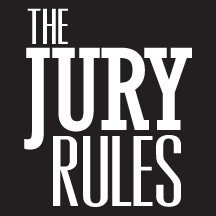How to Deal with an Admissible Blurt-Out
If the blurt-out is legal in the case – as in the above example – then the only objection the examiner has is “non-responsive” because it was not called for by that particular questions. No matter what you do, you will be forced to deal with that testimony sooner or later. Even if you are successful in striking the answer from the record, the victory is brief because the jurors have heard it and I guarantee you they will hear it again on redirect. And if he says it again on re-redirect, you absolutely must deal with it in on re-cross. Therefore, if a witness blurts-out non-responsive harmful information, you must deal with it then and there without running from it or whining to the judge for help. How is it done?
1. Make clear to the jury that the witness cheated.
Reap the benefit of the blurt-out by pointing out that the witness cheated. When a witness blurts out, he makes it possible for you to immediately impeach his credibility. When a witness deliberately exceeds the bounds of a question during cross-examination, the witness reveals himself to be a partisan and makes it possible for the cross-examiner to wound their credibility. You must then demonstrate that the witness has cheated, and that the witness did so because he is partisan. How? By immediately repeating the same question in exactly the same words. Why? To immediately demonstrate that the witness is cheating. And if the witness does it again, you should repeat the same question in the exact same words again. Indeed, the more the witness repeats the excessive answer, the better it is for you because the repeated fouls will make it clearer to the jury. Watch:
Q: You recognized the driver in the car, didn’t you?
A: Yes.
Q: It was Frank Jones, wasn’t it?
A: Yes. He was weaving and looked drunk.
Q: It was Frank Jones who was driving the car, wasn’t it?
A: Yes, I told you, and he was weaving and looked drunk.
Q: My question to you sir is, it was Frank Jones who was driving the car, wasn’t it?
If the jurors see what is going on – and sooner or later they will – this exchange has just made it easier for the cross-examiner to immediately go after the assertion that Frank Jones was drunk. You have just established that the source of that assertion is not a neutral or impartial witness, but someone who has taken the witness stand with a mission and a purpose. You have given the jurors a reason to be suspicious of the witness. Once this is done, the rest becomes easier.
a. Do not ask the court reporter to read back the question. It is essential for you to demonstrate the unfairness of the witness’ answer yourself. If you ask the court reporter to read back the question to the witness instead of immediately repeating the question, too much time will elapse – court reporters rarely find anything quickly. The moment will be lost.
b. Do not appeal to the judge. If you appeal to the judge, not only will you lose the opportunity to deal with the foul yourself, but you will send an invitation to your adversary to get involved in the dialogue with the judge. Then, anything can happen – and nothing will happen as immediately as if you do it yourself. Of course, if you repeat the question, your adversary (direct examiner) may insert himself anyway. He may object to what he will call harassing the witness when you repeat the question. And, if that happens, the judge’s response will be equally unpredictable, but, this much is absolutely certain: if the witness keeps on volunteering, and you keep on repeating the questions to demonstrate the unfairness of the witness, sooner or later your adversary will stop interfering.
2. Deal with the merits. After demonstrating the witness’ bias, you must immediately deal with the merits: The truth or falsity of the statement. For example:
Q: You did not administer any filed sobriety test to Mr. Jones?
A: No.
Q: You do not know Mr. Jones’ blood alcohol level?
A: No.
This assumes that you have something to deal with the volunteered material. But, even if you possess nothing to counter with, you are better off following this path, because you have at least damaged the witness by showing bias. And, if that is all that can be done, at least that is something.








